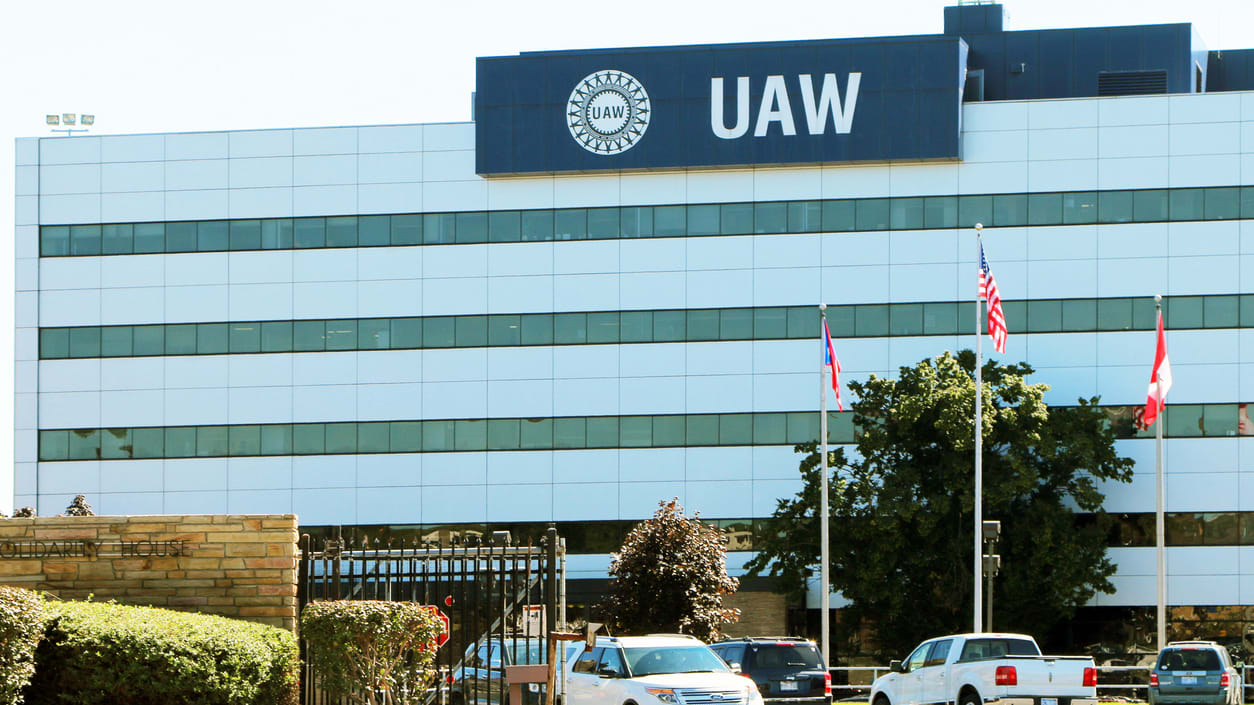[This article has been updated.]
The strike against General Motors (GM) and Stellantis, limited up to this point, will be expanded at noon today because not enough progress has been made in contract negotiations, said United Auto Workers (UAW) President Shawn Fain on Sept. 22. More progress has been made in negotiations with Ford Motor, so the strike against it won't be broadened. We've gathered articles on the news from SHRM Online and other media outlets.
Additional Work Stoppages
The additional work stoppages—including all 38 parts distribution centers at GM and Stellantis but not additional Ford factories—turn up the heat on GM and Stellantis as the union pushes for new labor deals.
(Axios)
Union Demands
The companies have offered raises of about 20 percent over four years, but Fain initially called for double that, noting more recently that the UAW has not made an offer below 30 percent. The union also wants pensions to cover more workers, companywide health care for retirees, shorter hours and measures that make it harder for companies to close U.S. plants. In addition, rather than tiered wages, which provide higher pay for those with lengthy seniority, the union is calling for "equal pay for equal work."
(The New York Times and CNBC)
Automakers’ Temporary Layoffs
GM idled an assembly plant in Kansas because of a shortage of parts due to the strike. Approximately 2,000 of its workers were temporarily laid off. Stellantis laid off about 370 workers at three parts factories that supply its Jeep plant in Toledo, where the UAW has gone on strike. Ford laid off 600 workers at a Michigan assembly plant. The carmakers have said they're developing contingency plans for further work stoppages.
The union has promised to pay wages to the temporarily laid-off workers until new contracts are signed. "Their plan won't work," Fain said. "The UAW will make sure any worker laid off in the Big Three's latest attack will not go without an income."
(CNBC, CBT News, The Washington Post and Bloomberg)
‘Record Offer’
GM President Mark Reuss wrote in an op-ed that the company made a "record offer" Sept. 14, addressing what employees said mattered to them most: wage growth, job security and long-term security. He said that the proposal to increase wages by 20 percent would mean approximately 85 percent of represented employees would earn about $82,000 per year. Total compensation for these employees with overtime and benefits would be more than $150,000 per year, he wrote.
Reuss described the UAW's demands as untenable, saying the company has already announced its intention to add jobs in 2024 as it pivots to a fleet of all electric vehicles (EVs). He emphasized the importance of capital investment in GM's EV future, saying, "If we don't continue to invest, we will lose ground—quickly."
Making Up for Concessions During the Great Recession
The UAW wants to make up for concessions that propped up the automakers during the Great Recession—the effects of which workers still feel to this day.
(NPR)
Many Members of the Public Support Strike
A Reuters/Ipsos poll found that 58 percent of U.S. citizens support the UAW strike, while 32 percent oppose the action and 10 percent were unsure. Two-thirds said pay for CEOs and workers should go up equally—a central talking point of the UAW strike.
(Reuters)
Bargaining over Representation at EV Plants
Another bargaining issue is whether the union can represent employees in new plants in the U.S. that are joint ventures with Asian companies to make EVs' batteries. Because electric vehicles require fewer parts and less labor to build than gasoline-powered vehicles, a transition to EVs may lead to closure of plants making engine parts for traditional cars. The union wants a guaranteed right to strike over plant closures and compensation in the event of a plant shutdown.
(The Washington Post, SHRM Online and NPR)
Ford Reaches Tentative Deal in Canada
On Sept. 20, Ford reached a tentative new deal with Unifor, the union representing auto factory workers in Canada. Unifor and the company didn't disclose details of their tentative agreement, which covers about 5,600 members at Ford's Canadian facilities.
Stipend for Striking Workers
Striking workers earn less during walkouts. The $500 per week stipend for striking and laid-off workers is well below their weekly earnings on the job.
An organization run by AI is not a futuristic concept. Such technology is already a part of many workplaces and will continue to shape the labor market and HR. Here's how employers and employees can successfully manage generative AI and other AI-powered systems.




